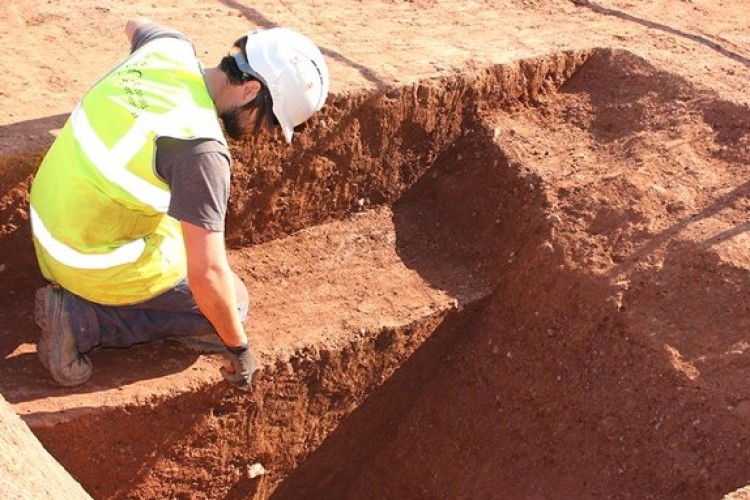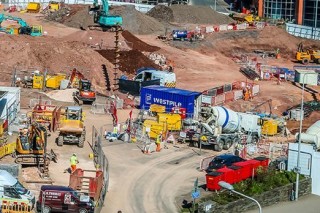Kier Construction is building a new bus station and leisure centre for Exeter City Council. Work on the £50m project started in January 2019 and is still expected to take two years to complete, despite the discovery of the remains of a Roman fort on the site.
The discovery was made by the Exeter Office of Cotswold Archaeology, which is working with Kier to record remains of the city’s Roman history ahead of main construction of a new bus station and leisure complex.
The find has been described by an archaeologist as ‘very important and completely unexpected’.
However, the archaeology work will not impact on the construction timetable, the council said.
The finds, which include coins and local pottery made in the area for the military, as well as fine red Samian tableware imported from France will be studied, and the results published.

First to be uncovered was a Roman ditch at the top end of the site between Bampfylde Street and Cheeke Street. Further excavations revealed two further large Roman ditches running parallel to each other. Archaeologists believe that these belong to a new, and completely unknown, Roman military site, either a fort occupied by a military unit, or a defended depot or compound.
Council heritage officer Andrew Pye said: “This is a very important, and completely unexpected, discovery, in an area that has been heavily changed by previous post war redevelopment. Along with other recent work in Exeter, it demonstrates just how much of the city’s history can still survive in unlikely places, despite damage caused by bombing and modern concrete foundations
"As the city continues to grow and renew, it is a good example of how the planning system and developers work together to make sure that remains that are inevitably affected by new development are properly excavated and recorded for the benefit of this and future generations.
"This discovery of yet another new Roman fort within the city does demonstrate, along with that of the fortress and baths back in the 1970s and of several other new major military sites in the last decade, just how pivotal a role the Exeter area played in the first decades of the Roman conquest and subjugation of Britain, and how crucial development led archaeology has been in revealing this.”
Got a story? Email news@theconstructionindex.co.uk




